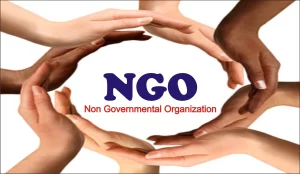![]()

Are NGOs Non-State Actors
Non-Governmental Organizations (NGOs) are widely recognized as pivotal players in the socio-political landscape. One common question that arises in discussions of their role is: Are NGOs considered non-state actors? The answer is a definitive yes. NGOs, by their very nature and definition, are non-state actors. But what does that really mean, and why is this distinction important?
Understanding Non-State Actor
Non-state actors refer to entities or organizations that hold significant influence and operate independently of government control or authority. They are distinct from state actors, which include national governments, local governments, and their various institutions. Non-state actors are characterized by their ability to influence public policy, social development, and international relations without being directly tied to or controlled by a state.
Examples of non-state actors include multinational corporations, international organizations, civil society groups, religious organizations, and of course, NGOs.
For further detail : https://ngodarpan.gov.in/
NGOs as Non-State Actor
NGOs fit neatly into the category of non-state actors because they are typically independent of government oversight and control. They operate on a voluntary basis, are usually funded by private donors, and focus on a variety of social, environmental, human rights, or humanitarian causes. While they may work closely with governments or international organizations, their autonomy and lack of formal state affiliation mark them as non-state actors.
Some key characteristics of NGOs as non-state actors include:
1.Independence from Government Control: NGOs are formed by individuals or groups acting voluntarily, rather than by government mandate. Their policies and programs are decided internally, without direct influence from state actors.
2. Mission-Driven: NGOs often pursue social, environmental, or humanitarian goals that may align with or challenge governmental policies. Their missions are typically based on the needs of civil society rather than state interests.
3. Global Reach: Many NGOs operate internationally, transcending national borders. In this capacity, they influence global policy, humanitarian aid, and environmental actions, making them key non-state actors in international relations.
NGOs and Their Influence as Non-State Actor
The influence of NGOs as non-state actors cannot be overstated. In many cases, they fill gaps left by governments, providing crucial services, advocating for marginalized communities, or pushing for reforms that might not be in the immediate interest of a state. For example, organizations like Amnesty International and Human Rights Watch hold states accountable for human rights violations, often bringing global attention to issues that may otherwise be overlooked.
NGOs also play a critical role in international diplomacy. They participate in global forums like the United Nations, advocating for climate change action, human rights protections, and sustainable development. Although they do not have the same legal status as state actors, their ability to mobilize public opinion and work across borders makes them highly influential in shaping policy and dialogue on a global scale.
Collaboration with State Actors
While NGO are classified as non-state actors, they often collaborate with state actors. In many cases, governments rely on NGO to deliver essential services, especially in areas like healthcare, disaster relief, and education. Governments may also work with NGOs to address specific societal challenges, such as poverty or environmental degradation.
However, the relationship between NGOs and states can be complex. In some cases, NGOs challenge state policies or expose state corruption, leading to tension or even suppression. This underscores the importance of their independence as non-state actors; their freedom to operate outside of government control is often what allows them to effectively advocate for social change.
Conclusion
In conclusion, NGO are indeed non-state actors, distinguished by their independence from government control, their mission-driven focus, and their global influence. They play a crucial role in shaping public policy, providing services, and advocating for human rights and environmental sustainability. While they collaborate with governments, their ability to operate independently is key to their effectiveness in addressing the needs of civil society. As non-state actors, NGO are invaluable to both national and international efforts to create a more just and equitable world.
For further details access our website: https://vibrantfinserv.com/
FAQs:
1. Are NGO considered non-state actors?
ANS: Yes, NGOs are non-state actors as they operate independently of government control.
2. What are non-state actors?
ANS: Non-state actors are organizations or entities that influence society or politics without being affiliated with any government.
3. How are NGOs different from state actors?
ANS: NGO operate independently of governments, while state actors include government institutions and agencies.
4. Do NGOs have political power?
ANS: NGOs do not hold formal political power but can influence policy, public opinion, and international relations.
5.Can NGO work with governments?
ANS: Yes, NGO often collaborate with governments but maintain their independence in decision-making.
6. What is the role of NGOs as non-state actors?
ANS: NGO advocate for social change, provide services, and influence global policies on issues like human rights and the environment.
7. Are all NGO non-state actors?
ANS: Yes, by definition, NGOs are independent from the government and thus are classified as non-state actors.
8.Can NGO influence international relations?
ANS: Yes, many NGO participate in global forums and shape international policies, especially on humanitarian and environmental issues.
9.Do NGOs have legal authority?
ANS: NGOs do not have legal authority like governments but can shape legal frameworks through advocacy and awareness campaigns.
10.Why is the independence of NGOs important?
ANS: Their independence allows NGOs to hold governments accountable and advocate for societal needs without state interference.